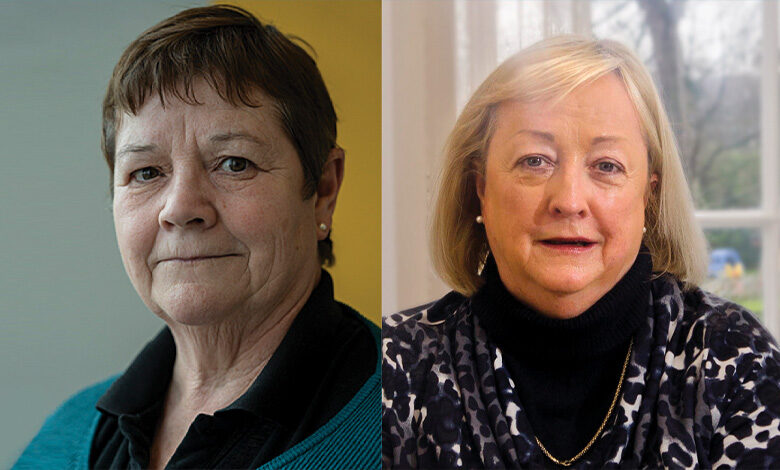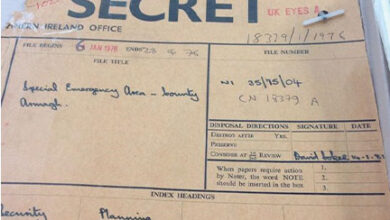Good Friday Agreement: 25 years on

25 years on from their historic involvement in the Good Friday Agreement, co-founders of the Northern Ireland Women’s Coalition, Monica McWilliams and Avila Kilmurray, believe the conditions for positive activism set at the time must be built upon once more.
The snow clouds had just lifted on Good Friday, April 1998, as an elated group of women clustered on the steps of Castle Buildings in Stormont to celebrate the acceptance of an agreement. The chill in the air failed to dampen the sense of mixed elation and relief. It had been touch and go the previous week.
A peace agreement was tantalisingly within grasp, but was being heckled by the booming denunciations of those politicians who had walked out of the talks the previous year, alongside the door slamming of those who rejected the proposed framework. Just over six weeks later, through two concurrent referenda, the people in Northern Ireland and the Republic of Ireland voted in large numbers to accept the provisions of the Good Friday Agreement.
We were two of the co-founders of the Northern Ireland Women’s Coalition. We deliberately formed a coalition, not a party, with a shared leadership from both nationalist and unionist traditions.
We modelled our ability to reach across our divisions by adopting shared values – equality, human rights, and inclusion. We worked hard to enshrine these values in the Agreement. We were determined to think beyond a politics of narrow interest and violence. Alongside many other people, our vision and our aspirations were broader than that.
The Coalition successfully argued for support for integrated education and shared housing in the Agreement. We named the importance of community development and the advancement of women in public life. We prioritised the concerns of victims/survivors of the conflict and we were convinced that politics in Northern Ireland would benefit from participative democracy – the mobilisation of broader expertise and insight through a civic forum. We believed that people in Northern Ireland could use the opportunity of peace to create a better society.
Were we overly optimistic? Perhaps to an extent. Yet, despite the persistence of traditional political ruts that all too often mired our politics over the next 25 years, that period has been immeasurably better than the previous decades of violent conflict or one-party political hegemony. What was disappointing was the relative withdrawal of civil society from proactive political voice. The Concordia, composed of employers, trade unions, agricultural and voluntary sector representatives, that NICVA (Northern Ireland Council for Voluntary Action) had curated in the 1990s is no more. Community-based groups are increasingly designated as PUL (Protestant/unionist/loyalist) or CNR (Catholic/nationalist/republican), and only 8 per cent of children benefit from integrated education. There is still much to be done.
But the optimism of April 1998 was not misplaced. The conditions were set for positive activism. All that is now needed is the confidence and foresight to work around, between, and over the negativities of a shared out, rather than a genuinely shared, politics. What this particular party, or that one, thinks, and says is still important, but there is a need for alternate spaces to think outside of the political party boxes. Women have always been good at this.





